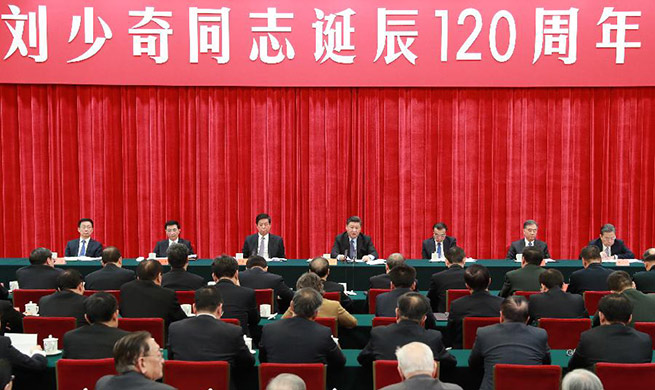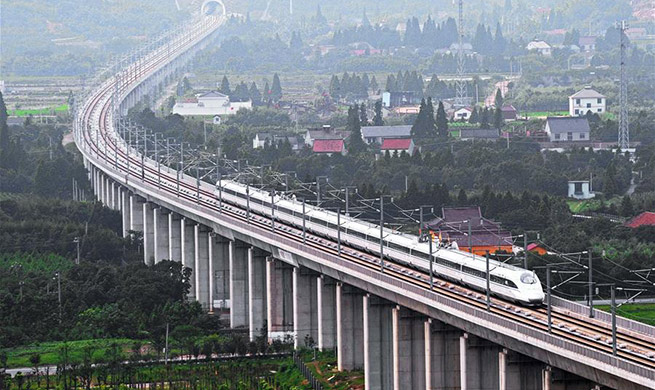BERLIN, Nov. 23 (Xinhua) -- The immigration of skilled workers from non-EU countries to Germany is on the rise, according to a study published on Friday by the Bertelsmann foundation.
According to the study, a total of some 545,000 people from non-EU countries immigrated to Germany in 2017, of which 7 percent were skilled workers.
In 2015, the share of skilled workers among migrants from non-EU countries in Germany was 3 percent. The main non-European countries of origin for professionals who migrated to Germany in 2017 were India, Bosnia and Herzegovina, the U.S., Serbia and China.
About 635,000 people migrated from foreign EU countries to Germany in 2017. Some 60 percent of the inner-European migrants in Germany were skilled workers holding a university or vocational qualification. Romania, Poland, Bulgaria, Croatia and Italy are the main countries from which people moved to Germany within the EU in 2017.
Matthias Mayer, migration expert at the Bertelsmann foundation and author of the study, said that an "effective immigration law" embedded in a "comprehensive strategy" for securing skilled workers for the German labor market would be needed.
The German government plans to acquire more qualified workers from EU countries and non-EU countries for the German labor market by adopting an immigration law for skilled workers.
Such a law should ensure, among other things, more effectiveness in dealing with immigrant specialists, according to Mayer. He demanded for "an optimization and acceleration of migration management" as well as a better recognition of foreign vocational qualifications.
Mayer said that such an immigration act should "also look after disadvantaged domestic groups, in particular older people, women, mothers, the (long-term) unemployed, the low-skilled and people with disabilities".













